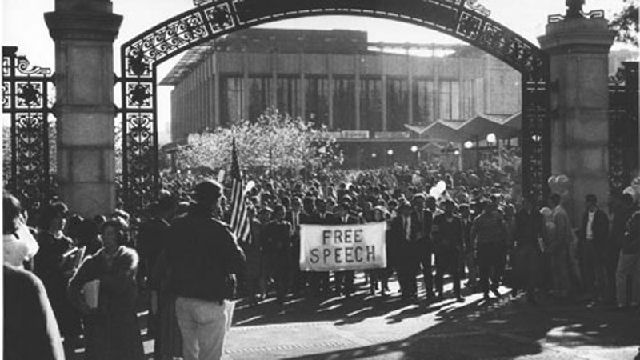
A free speech checklist
Twelve ways in which universities can ensure and promote free speech
- Publication. Have a ‘Freedom of Speech’ link to their free speech code/policy on the home page of the university.
- Web Page. Create a dedicated free speech web page, with links to all relevant documents in one place.
- Student Unions. Require Student Unions to adopt and uphold the university’s free speech code/policy.
- Events. Organise a free speech stand and event at Freshers’ Week.
- Training. Ensure all staff have sufficient information and training in the context of their roles on the law relating to free speech and its protection, and that students have sufficient information and training on the law relating to free speech and its protection.
- Public Debate. Organise an annual public debate on issues relating to free speech, academic freedom, and the role of a university
- Costs. Bear the cost of rooms and appropriate security for approved debates and other events organised by academic staff. Once an event is approved, the university must not charge organisers for security except in genuinely exceptional circumstances.
- Institutional Neutrality. Adopt the ‘Kalven Principle’ of Institutional Neutrality. This means that a university must not take an institutional position, or take faculty positions, on political and social issues. This principle applies to adopting the policies and positions of partisan organisations (e.g. Stonewall).
- Staffing. Appoint at least one individual as a free speech champion, to be the internal advocate for free speech and academic freedom, with responsibility for ensuring that the university complies with its legal obligations. The person appointed as a champion should have a history of support for free speech. We recommend a 0.5 appointment, so the champion remains a working academic.
- Complaints. Have a specific free speech complaints’ procedure for staff, students and visiting speakers who feel their free speech rights have been contravened.
- Social Media. End the practice of monitoring staff social media accounts to identify ‘unacceptable’ or ‘offensive’ opinions.
- Reporting. Produce an annual, public report on how the university has, and how it will continue to ensure and promote freedom of speech.
This is AFAF’s version of a list of examples that resulted from discussions between the major free speech organisations, AFAF, AFFS, CAF, LUCAF and SAFAF. They will be the focus of future assessments of how any higher education institution supports free speech. how they will, ensure freedom of speech.
Pages: 1 2

